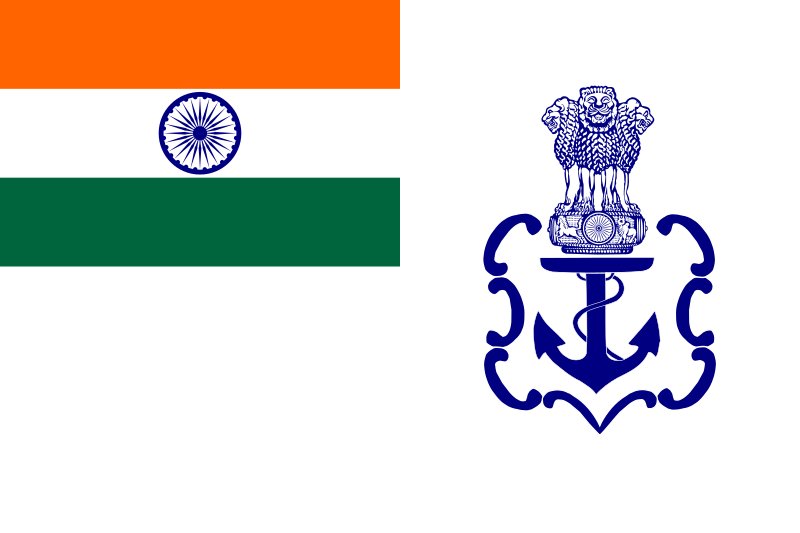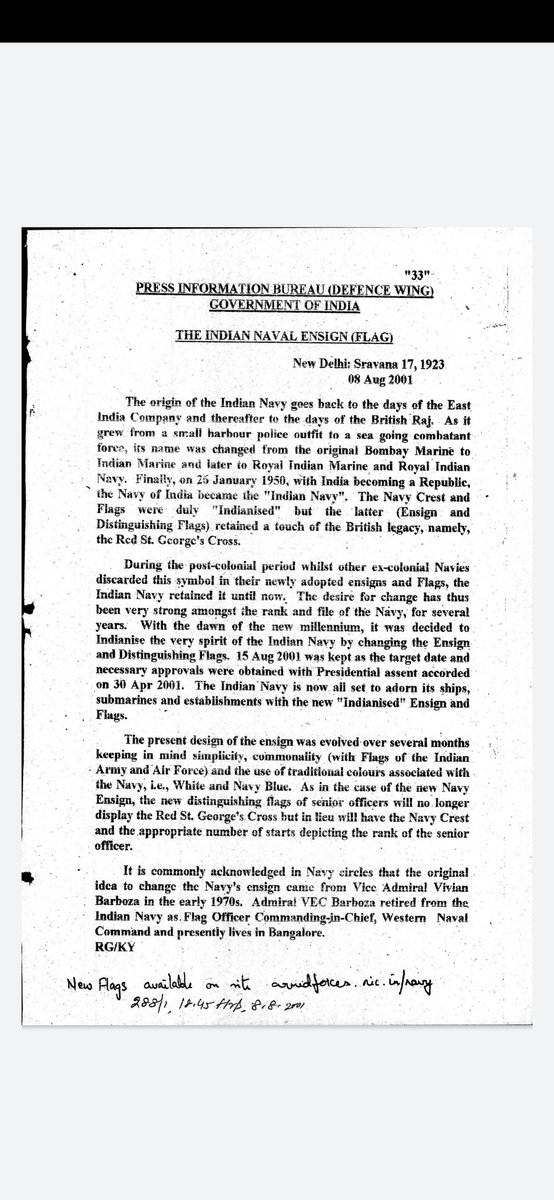
It was replaced by this in 2001 under Vajpayee and Jaswant Singh, but was changed back to St George's Cross in the middle of the 2004 general elections.
Because officers complained that the flags "merged with the blue colour of the sea and the sky and were not visible from far."
Because officers complained that the flags "merged with the blue colour of the sea and the sky and were not visible from far."
https://twitter.com/chasing_highs/status/1401831601126866951

2001: "During the post-colonial period whilst other ex-colonial Navies discarded this symbol in their newly adopted ensigns and Flags, the Indian Navy retained it until now. The desire for change has thus been very strong amongst the rank and file of the Navy, for several years." 

"It is commonly acknowledged in Navy circles that the original idea to change the Navy's ensign came from Vice Admiral Vivian Barbora in the early 1970s.
Admirai VEC Barboza retired from the Indian Navy as Flag Officer Commanding-in-Chief, Western Naval Command ..."
Admirai VEC Barboza retired from the Indian Navy as Flag Officer Commanding-in-Chief, Western Naval Command ..."

2004: "Ever since the Navy made sweeping changes in its ensign and distinguishing flags and pendants of its officers, there was a complaint ... from those who went out to the sea that the flags merged with the blue colour of the sea and the sky and were not visible from far." 



• • •
Missing some Tweet in this thread? You can try to
force a refresh













